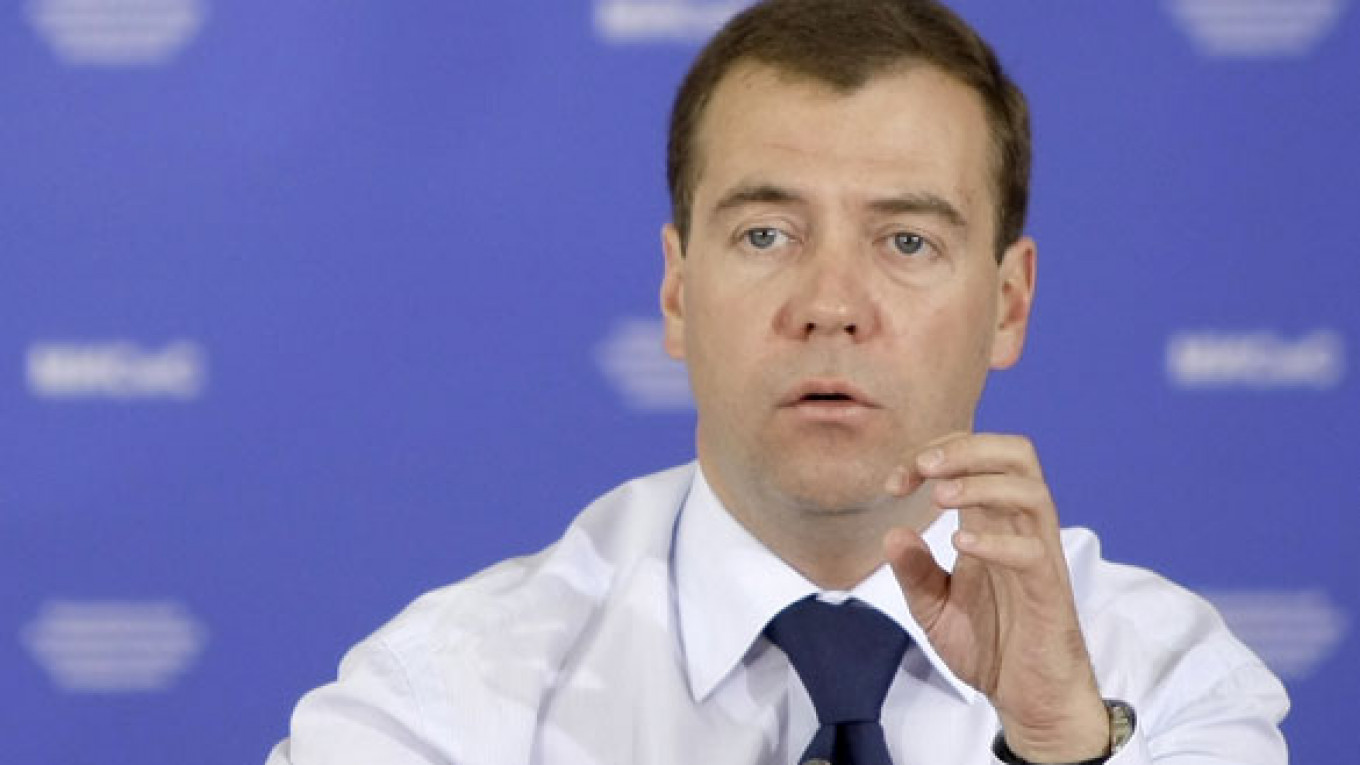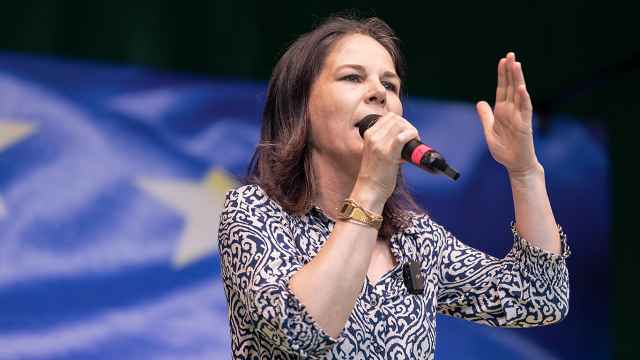President Dmitry Medvedev insisted that his modernization drive went beyond technological innovations Tuesday, saying Russia could not be modernized without fighting corruption, curbing the state's involvement in the economy and introducing fair competition.
The president, speaking at a meeting of the presidential commission for modernization in the Kremlin, was referring to a poll conducted by the Tsirkon think tank and published in Vedomosti on Tuesday in which respondents said rooting out corruption, decreasing the economy's dependence on state officials and fair competition were more important for the country's modernization than technological innovations.
"It is very symptomatic that our people have laid out these positions as the key ones," Medvedev said.
Unlike his predecessor, Vladimir Putin, who made no attempt to engage nonstate actors in a dialogue with the Kremlin, Medvedev has repeatedly invited businesses and public groups to contribute to discussions about the country's most pressing problems.
Still, the almost immediate reaction by the president to a newspaper article was unprecedented.
Boris Makarenko, an analyst with the Center for Political Technologies, said Medvedev acted like a real public politician by responding quickly to criticism in the media.
"Politicians respond quickly when they see it as beneficial," he added.
Moreover, Medvedev used the opportunity to demonstrate his solidarity with the existing public consensus that Russia's biggest threats were corruption and bureaucracy, he said.
Medvedev said at the meeting that even though technological modernization was a very important element of Russia's development, "other conditions going along with the process are, regretfully, no less important." Without tackling corruption and bureaucracy, he said, no innovative economy could appear.
Medvedev dismissed a claim made in the Vedomosti article that Russians understand the essence of modernization differently from him.
"It is newspapers' business to always dramatize," he said. "This is absolutely normal, maybe even necessary at times."
Almost immediately after Medvedev published his "Go, Russia" manifesto last September, when he proclaimed the modernization of Russia's economy as his top policy priority, he was criticized widely for not wanting to reform the country's political and administrative systems, where rampant corruption and ineffectiveness are generally seen as the biggest hindrances to Russia's development.
In "Go, Russia," Medvedev explicitly made clear that the country's political system would not be changed but remain "open" and "flexible."
The president's record on battling corruption, lifting administrative barriers and boosting fair competition has been mixed.
Medvedev has introduced a raft of legislation aimed against corrupt practices, but law enforcement agencies, corruption watchdogs and businessmen have complained that the bribes demanded by the corrupt officials have steadily grown. (Story, Page 3.)
Political commentators say Medvedev's measures are doomed to failure because he has entrusted the task of fighting corruption and nepotism to government officials rather than public or parliamentary committees who could offer oversight over the executive branch.
Medvedev said he signed several laws Tuesday, including a law on state and municipal services that will allow people to order a broad array of those services over the Internet and without dealing with officials.
"We may not be like Singapore a year from now, but I want this system to go operational in five years," he said.
Tuesday's meeting was dedicated to the development of venture capitalism in Russia, which Medvedev called "modest."
He said only 43 venture funds managing about $2 billion are active in Russia.
"This is not much at all for a country like ours," he said.
A Message from The Moscow Times:
Dear readers,
We are facing unprecedented challenges. Russia's Prosecutor General's Office has designated The Moscow Times as an "undesirable" organization, criminalizing our work and putting our staff at risk of prosecution. This follows our earlier unjust labeling as a "foreign agent."
These actions are direct attempts to silence independent journalism in Russia. The authorities claim our work "discredits the decisions of the Russian leadership." We see things differently: we strive to provide accurate, unbiased reporting on Russia.
We, the journalists of The Moscow Times, refuse to be silenced. But to continue our work, we need your help.
Your support, no matter how small, makes a world of difference. If you can, please support us monthly starting from just $2. It's quick to set up, and every contribution makes a significant impact.
By supporting The Moscow Times, you're defending open, independent journalism in the face of repression. Thank you for standing with us.
Remind me later.







